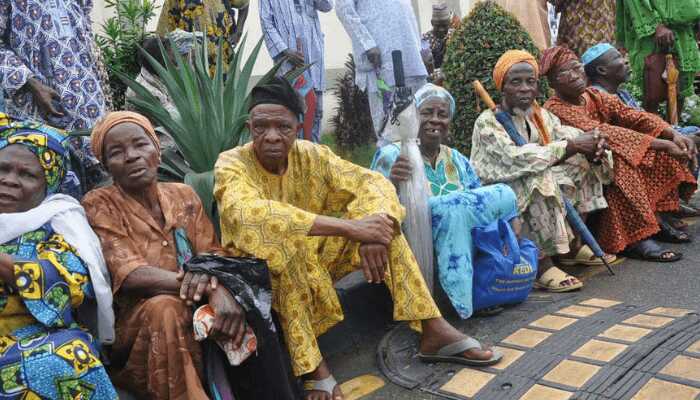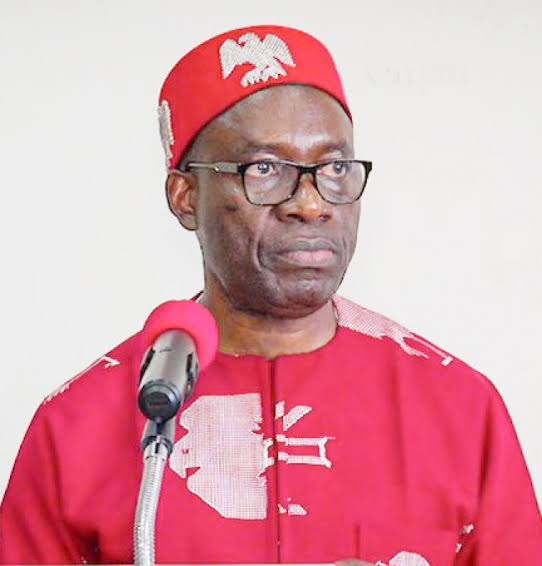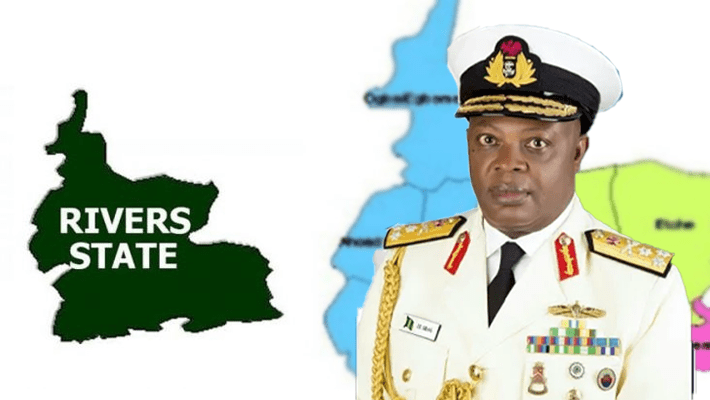Some Federal Government retirees are spending years after retirement not being able to access their pensions for reasons they did not cause.
This is not because the Contributory Pension Scheme (CPS), which they transited to from the Defined Benefits Scheme (DBS), is not working, but because of government’s failure to implement the Retirement Benefits Bond Redemption Fund Account as provided in the Pension Reform Act 2014.
Section 39 (2) of the Pension Reform Act (PRA) 2014 mandates the Federal Government to pay into the Retirement Benefits Bond Redemption Fund Account an amount not less than 5 percent of the total monthly wage bill payable to employees in the Public Service of the Federation towards the redemption of the accrued pension right of Federal Government of Nigeria retirees.
However, the National Pension Commission’s (PenCom) recent announcement of Federal Government’s approval for the payment of some critical aspects of outstanding pension liabilities under the CPS is a cheery news, but not still the final solution.
Section 39 (2) of the Pension Reform Act (PRA) 2014 mandates the Federal Government to pay into the Retirement Benefits Bond Redemption Fund Account an amount not less than 5 percent of the total monthly wage bill payable to employees in the Public Service of the Federation towards the redemption of the accrued pension right of Federal Government of Nigeria retirees.
However, the National Pension Commission’s (PenCom) recent announcement of Federal Government’s approval for the payment of some critical aspects of outstanding pension liabilities under the CPS is a cheery news, but not still the final solution.
Specifically, the president approved: payment of outstanding pension rights for verified and enrolled retirees of treasury funded Ministries, Departments and Agencies (MDAs); payment of 2.5 percent differential in the rate of employer pension contribution for Federal Government Retirees and employees, which resulted from the increase of employer’s contribution of 10 percent as provided for in the Pension Reform Act (PRA) 2014, with effect from July 1, 2014, and funds made available for the settlement of the two stated liabilities.
Though Federal Government has since 2017 been releasing funds for payment of the accrued rights in piecemeal, against amounts requested by PenCom for the payment. The shortfall has been responsible for the accumulation of several months of unpaid accrued pension rights that have now led to months of unpaid pensions.
Ivor Takor, director, Centre for Pension Rights Advocacy (CPRA), reviewing the recent announcement on payment of outstanding pension liabilities, applauds President Muhammadu Buhari, but notes that sustainable measure is critical to make the CPS succeed.
Takor says the inadequate or total non-funding of the Redemption Fund against the annual projected pension liability of the Federal Government arising from voluntary and mandatory retirements, death of employees in service and the right of pensioners to pension review in line with Section 173(3) of the 1999 Constitution (as amended) have been the greatest challenge of the CPS in the Federal Public Service.
Takor says the inadequate or total non-funding of the Redemption Fund against the annual projected pension liability of the Federal Government arising from voluntary and mandatory retirements, death of employees in service and the right of pensioners to pension review in line with Section 173(3) of the 1999 Constitution (as amended) have been the greatest challenge of the CPS in the Federal Public Service.Loading…
Explaining further, he states that the Federal Government liabilities on accrued pension rights arose because employees’ right to accrued retirement benefits for the previous years they had been in employment was guaranteed by PRA 2004 and later PRA 2014.
“For employees of the Public Service of the Federation and Federal Capital Territory, where pension scheme was unfunded, the rights were acknowledged through the issuance of a ‘Federal Government Retirement Benefits Bond’ to such employees, under Section 15 of PRA 2014, while Section 39 provides for the redemption of the Bonds,” he explains.
According to Takor, there are retirees who are known to have been without pensions for over one year, with attendant negative economic and social effect on them and their families. The same is the case for families of employees who died in service. This is contrary to the objective of the pension reforms carried out in 2004, which is to ensure that every person that worked in either the public or private sector receives his/her retirement benefits as and when due.
He further notes that the approval of the president is therefore a significant development that has resolved the challenges in the administration of the CPS, as it affects FGN employees of MDAs that have lingered since 2014.
“It is very welcome news, to the retirees, their immediate families and families of deceased Federal Civil Servants. These categories of citizens have suffered tremendously as a result of the non-compliance by the Federal Government, with the provisions of PRA 2014.
“The question now is how retirees of MDAs are going to get the arrears of the 2.5 percent paid by the Federal Government. The answer to this question is simply that for employees who are still in service, the arrears will be credited into their RSAs.
“Retirees under the CPS draw their pension through two sources. Those who draw their pension through Programmed Withdrawal administered by PFAs will get the arrears credited into their RSAs with the PFAs and their monthly pension adjusted accordingly. While those who are on annuity, which is a product purchased from Life Insurance Companies, will have their arrears forwarded to the Life Insurance Companies,” according to him.
Whereas, anyone under annuity, whose arrears is less than N100,000, the money will be credited into their bank accounts, while anyone whose arrears is above N100,000, the Life Insurance Company will renegotiate and adjust their agreed monthly annuity, commensurate with the new amount, he states.










